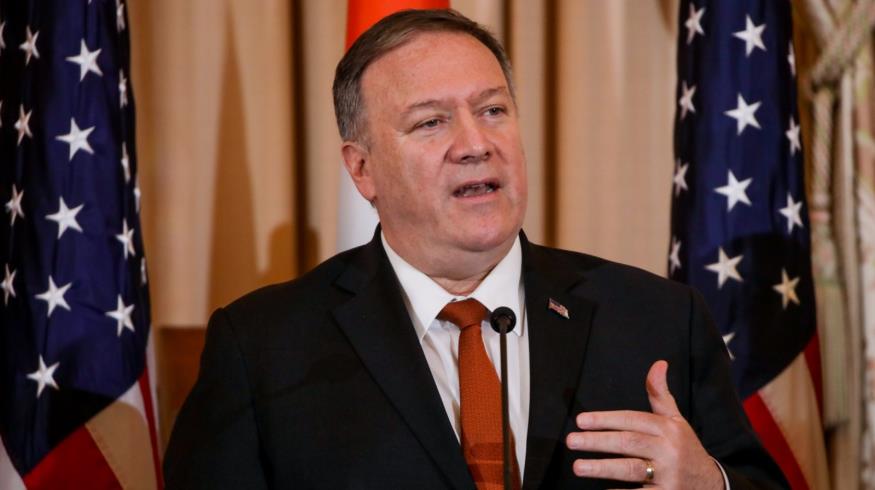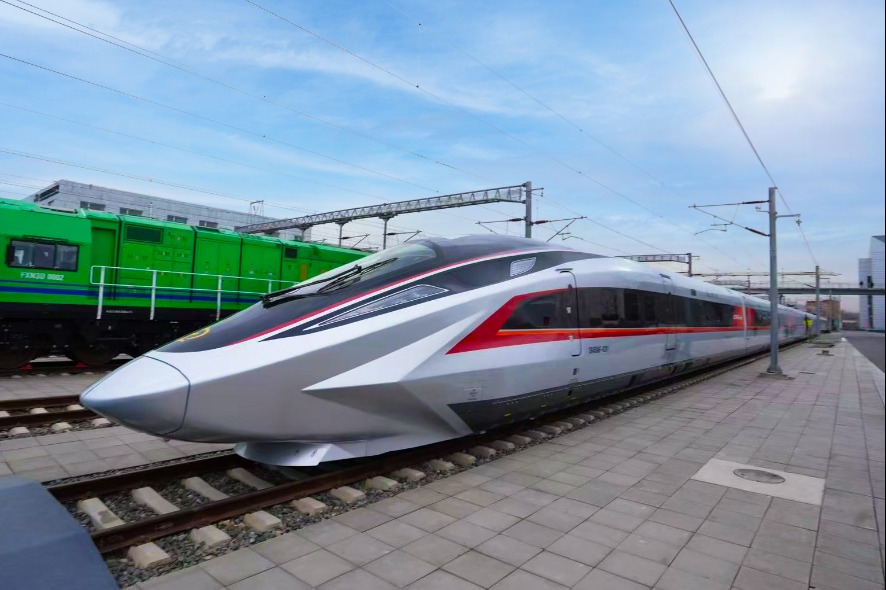Pompeo wastes his time trying to defame China in Central Asia


While people in China have been going all out in the fight against the novel coronavirus, US Secretary of State Mike Pompeo whisked through Central Asia a few days ago trying to drive a wedge between the region's countries and China.
This is nothing new. The former CIA chief has been a fanatic in his attempts to smear China, outshining almost all his predecessors in this regard.
In Sur-Sultan, capital of Kazakhstan, Pompeo told the local media: "We know that there are security issues here.… A good example is what's going on with the coronavirus.… You've got a long border with China, which is where this disease has emanated from."
The top US diplomat clearly felt that China's challenge posed by coronavirus is something he can cash in on to the score points for the US in its geopolitical game.
The Washington Times reported that Pompeo warned Central Asian nations against doing business with Chinese companies, citing concerns of a lack of transparency to weak environmental protection. He claimed that nations should ink deals with US companies that are far more reliable and responsible than their Chinese competitors.
I don't mind Pompeo advocating for US businesses. However, trying to do that by slandering Chinese companies is unethical and it's hard to think any other nation's top diplomat doing that.
Asked by the Associated Press whether he shared Pompeo's concern of the Chinese threat and influence in the region, Uzbekistan Foreign Minister Abdulaziz Kamilov said that he wanted to see Central Asia as a region of stable development, prosperity and cooperation, and he didn't want the region to bear the consequence of the competition between large powers.
It was an outright rejection of Pompeo's scheme to make Central Asia a geopolitical battleground. Pompeo has met the same response in other countries when he tried to sow discord between those countries and China.
If Pompeo's visit was "to stress US support for a better-connected, more prosperous and more secure Central Asia" as his State Department claimed, he should tell the US government and companies to follow China's lead in building roads, bridges, power grids and pipelines in Central Asia.
In a paper "Connecting Central Asia to the World" posted on the Brookings Institution's website in September, World Bank experts Wolfgang Fengler and Paul Vallely wrote that Central Asia is benefiting from ongoing and planned upgrading works under China's Belt and Road Initiative.
China has become a major trade partner and investor in Central Asia. But still, Central Asia has huge demand for foreign trade and investment, especially in infrastructure.
So if Pompeo is keen to boost US trade and investment in the region, he does not need to achieve that by defaming China and playing a zero sum game against China, or Russia or the European Union or the Gulf states, all of which are investing in the region.
The United States has long neglected Central Asia. Pompeo was said to be the most senior US official to visit the region since then-Secretary of State John Kerry in 2015.
In contrast, Chinese President Xi Jinping paid state visits to Kyrgzstan and Tajikistan last June and attended the summit of Organization of Shanghai Cooperation. Premier Li Keqiang paid an official visit to Uzbekistan late last year and also attended an SCO meeting there.
Unless the US has the same commitment as China does in building connectivity and expanding win-win cooperation in Central Asia, Pompeo is simply wasting his time trying to undermine China's interests there.
The author is chief of China Daily EU Bureau based in Brussels.

































